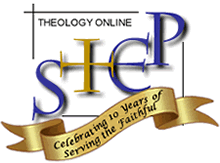
Thomas C. Cummings teaches theology and likes to quote Karl Rahner’s remark that “the Christian of the future will be a mystic or will not exist at all.” He also likes to round out the quote by adding that Rahner didn’t consider mysticism some exotic spiritual phenomenon but “a genuine experience of God emerging from the very heart of our existence.”
“That’s what I love about all this,” Cummings said, ready with another quotation, this one from the 11th century theologian, St. Anselm. “It really is ‘faith seeking understanding,’ and it’s having a significant and benevolent influence in the life of the Church and in evangelization throughout the country.”
By “all this,” Cummings refers to Notre Dame’s Satellite Theological Education Program (STEP), which he has directed since 1999. The program makes use of the Internet, interactive videoconferences and numerous distance learning technologies to offer courses in theology and spiritual life to interested Catholic lay people, pastoral ministers and other believers nationwide and beyond.

STEP is among the most successful programs of the University’s Institute for Church Life (ICL), whose expressed mission is to deploy Notre Dame’s ample academic resources as “a witness-bearing leadership role in the life of the Church at large.”
With more than 1,500 enrollments each year, engaging students from every Catholic diocese in the United States, the program certainly does that much and perhaps even more.
“STEP is a crucial link in Notre Dame’s educational outreach in theology,” said John C. Cavadini, the McGrath-Cavadini Director of the ICL. “It provides very high quality courses, both not for credit and, through the theology department, for credit. The intended audience includes the many people who work in pastoral and teaching ministries in the Church, for whom it is not easy to travel to campus, and for whom there are not many local options. STEP partners with dioceses so that, instead of offering alternative programming to what is available in the diocese, we enhance the programming in the diocese. We think together about what the needs of the diocese might be, and then design programming accordingly.”
STEP offers 50 specifically designed online courses, most of them taught by Notre Dame faculty members, including Cavadini and Cummings. The course offerings are as rich and varied as a sampling of their titles suggests: “In God’s Image: The Mystery of Creation”; “Theology of the Body”; “Mary in the Catholic Tradition”; “The Christian Conscience and Ethical Dilemmas”; “Catholic Prayer: The Lord’s Prayer, the Hail Mary, and the Doxology ”; “Emerging Models of Catechesis”; “History of Christianity”; “Vatican II: The Experience and the Event”; “Eucharist: Source and Summit of the Christian Life”; “Breaking Open the Word: A Model for Catechesis and Homily Preparation”; “The Confessions of St. Augustine”; and “Biblical Literary Forms.”
Not long before he died, Pope John Paul II recommended that the Church welcome and even enthusiastically embrace recent developments in communications technology.
“We must be grateful,” Blessed John Paul wrote, “for the new technology which enables us to store information in vast man-made artificial memories, thus providing wide and instant access to the knowledge which is our human heritage, to the Church’s teaching and tradition, the words of sacred Scripture, the counsels of the great masters of spirituality, the history and traditions of the local churches, and to the ideas and experiences of initiators and innovators whose insights bear constant witness to the faithful presence in our midst of a loving Father who brings out of his treasure new things and old.”
Cummings likes to quote Blessed John Paul, too.
_*Contact*: Thomas C. Cummings, 574-631-4535, cummings.8@nd.edu